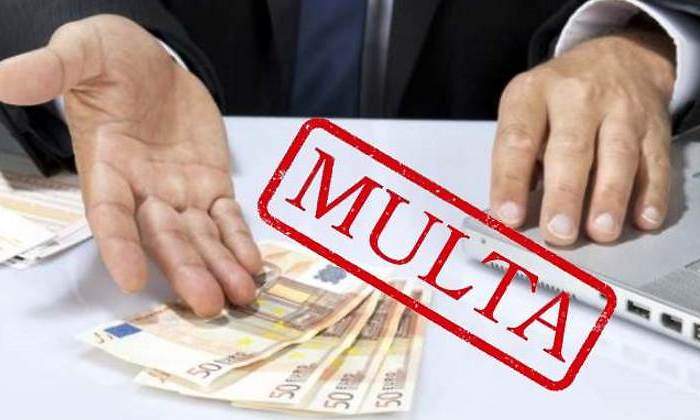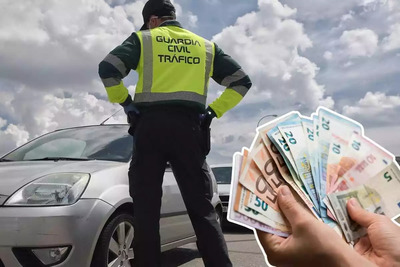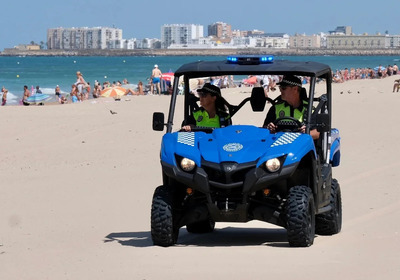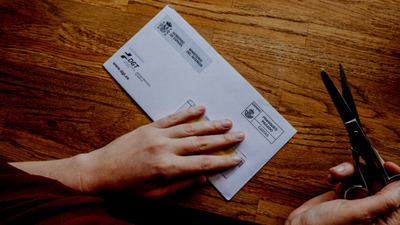
Spain is one of the most popular tourist destinations in the world. Millions of people visit this sunny country every year, enjoying its rich culture, amazing architecture and beautiful beaches.
When coming here for tourism purposes, Spanish law allows you to drive for 90 days from the date of arrival if you have reached the minimum age and your driving licence is valid.
It is important to remember that local rules and laws may differ significantly from what tourists are used to in their own country. Despite all the pluses in Spain you need to follow certain rules and know what fines are the most common, in order to avoid problems in time and not to spoil your holiday. Well, and of course it is not superfluous to know what to do in case of receiving a fine in Spain.
The most common fines in Spain
In Spain, there are many reasons for which you can receive a fine. Some of them relate to traffic regulations, while others relate to public order and behaviour on the streets.
Fines for traffic offences
 One of the most common reasons for fines in Spain are traffic offences. There are strict rules on the roads in Spain that must be adhered to. The main reasons for receiving fines include:
One of the most common reasons for fines in Spain are traffic offences. There are strict rules on the roads in Spain that must be adhered to. The main reasons for receiving fines include:
-
Exceeding speed limits. Depending on where the offence was recorded, the amount of the fine may vary. Urban areas usually have lower speed limits, such as 50 km/h, while on motorways the speed limit can be as high as 120 km/h. Of course, you are not always fined, but you don't know for sure where the next radar is hiding. And for the sake of your own and other people's safety, you should not exceed the speed limit, because they set it for a reason.
-
Using a mobile phone while driving. In Spain it is illegal to use a mobile phone while driving without a hands-free system. This offence can cost the driver a significant amount of money. Or it may not. But it is better not to risk it, because a phone call is very distracting while driving, and everyone knows it.
-
Non-use of seat belts. All passengers in a car, including rear passengers, must wear a seatbelt. There are also serious fines for this offence. Although most people are used to wearing seatbelts, local authorities carry out periodic checks and if you do forget to wear a seatbelt and are caught, you will be fined.
- Drunk driving. One of the most serious road traffic offences, both in Spain and elsewhere. According to current regulations, the permissible blood alcohol level for drivers is 0.5 ppm (1 bottle of beer or 1 glass of wine). Exceeding these limits can lead to serious consequences, not only in terms of fines, but also in terms of the possible consequences of taking alcohol.
-
Non-compliance with parking regulations. Spain has its own local parking regulations. Incorrect parking will not only result in a fine, but can also result in your car being towed to a car park. Parking regulations in Spain can be found here.
Fines for public order offences
Public order disturbances can also cause problems for tourists. For example:
-
Smoking in public areas. Spain has laws regarding smoking in public places, including restaurants and bars. There are heavy fines for those who break this rule. This rule, as you have noticed or will see, is not enforced by many people, but if you want to smoke in a place where there is a ‘No Smoking’ sign, you can legally be fined. This also applies to the beach - it is illegal to smoke on the beach and the fine can be up to 2000 euros!

-
Drunk behaviour. Drinking in the street or misbehaviour can also result in a fine. The Spanish authorities find this unacceptable and significant fines can be imposed for such offences. And rightly so.
-
Sound contamination. Fines for loud music or noise at night are also a serious problem for tourists, especially in residential areas.
How to avoid fines as a tourist
Being aware of local laws and customs can help tourists avoid unpleasant situations. Here are some tips on how you can minimise the chances of getting a fine:
Learning the rules before travelling
Before travelling to Spain, it is advisable to learn the basic traffic rules that apply in the country. This will help you to be aware of what is allowed and what is not, which will help you avoid fines.
Respect for personal safety and respect for others
In public places, try to behave respectfully and calmly, it is not difficult. Avoid conflict situations that could result in a fine. Spend time away from places where noisy people usually gather and keep an eye on the sound level.
Using taxis or public transport
For tourists who are not confident in their driving skills or who find simple driving in unfamiliar cities difficult, the best option is to use taxis or public transport. This will significantly reduce the likelihood of breaking traffic rules and, as a result, receiving a fine.
How to find out if you have been fined
 In Spain, there are several ways in which the authorities notify the imposition of a fine. This usually depends on the nature of the offence.
In Spain, there are several ways in which the authorities notify the imposition of a fine. This usually depends on the nature of the offence.
A letter in the post
If the fine was imposed for speeding or another traffic offence, the notice may come by post to the address registered to the vehicle. The letter will tell you the amount of the fine and instructions on how to pay it. And even if you are a tourist, the fine notice may come to your address in your country of residence. If the car is a hire car, the fine may be sent to the hire company who will contact you and ask you to pay it. This service also costs a fee, so be prepared and don't break the traffic rules in Spain.
Police notification
In some cases, if you are caught in the act, the police may immediately issue you with a report with a fine. It is important to check all the details on the document to make sure they are correct. There are no problems here - fined - paid - forgotten - no more offences.
Online platforms
Many local authorities have set up platforms for online payment and checking fines. If you have received a fine, you can enter your licence plate number or other information and check the status. There is an official website - www.dgt.es. This is where you can usually find all the information about the fines you have.
How to pay fines in Spain
If you have received a fine, it is important to pay it quickly and correctly to avoid an increase in the amount. The Spanish authorities offer several ways to pay the fine.
Online payment
Many official portals allow you to pay a fine online. To do this, you will need to enter your identity card, vehicle number and other data. Again, www.dgt.es has all the information on fines and they pay them here as well. This is the fastest and most convenient way.
Payment at a bank branch
You can also pay the fine at any bank. To do this, simply provide the fine notice and the amount to be paid.
Payment by post
In some cases it may be possible to send a cheque by post with all the necessary details. Make sure you send it in advance to avoid late payment.
When visiting Spain, it is important to be aware of local laws and rules of behaviour. Major fines can be related to traffic, public order and respect for others. Tourists should follow local rules to avoid trouble and fines. It is also important to know how to find out if you have received a fine and what payment methods are available. Have a good stay in Spain and enjoy your trip!


 English
English  Español
Español  Русский
Русский